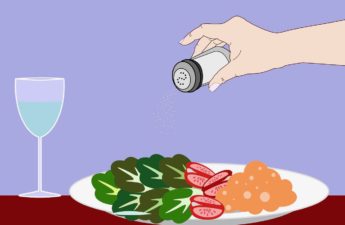Category: Heart and Circulatory System
Social factors help explain worse cardiovascular health among adults in rural vs. urban communities
Researchers found that factors such as levels of income and education, having enough food to eat, and owning a home mostly explained the higher rates of people in rural areas who had high blood pressure, diabetes, and heart disease.
The paradox of weight loss: why losing pounds may not always lead to better health
research indicates that significant weight loss – greater than 10kg – can actually increase the risk of early death in obese people with cardiovascular disease.
Are eggs good or bad for our health?
You might have heard that eating too many eggs will cause high cholesterol levels, leading to poor health.
Researchers have examined the science behind this myth again, and again, and again – largely debunking the claim.
A new study suggests that, among older adults, eating eggs supports heart health and even reduces the risk of premature death.
Want to live longer and save money? Online app can help calculate your benefits from cutting back on alcohol
Timothy Naimi, University of Victoria and Peter Butt, University of Saskatchewan Dry January is a time when many people think about taking a break from alcohol and giving their liver a rest. But what does that look like in terms…
Why the WHO has recommended switching to a healthier salt alternative
the main lower-sodium salt substitute is called potassium-enriched salt.
This is salt where some of the sodium chloride has been replaced with potassium chloride. Potassium-enriched salt benefits our health by cutting the amount of sodium we consume, and increasing the amount of potassium in our diets.
Both help to lower blood pressure. Switching regular salt for potassium-enriched salt has been shown to reduce the risk of heart disease, stroke and premature death in large trials around the world.
Wood burning produces a complex chemical mixture of fine particulate matter (PM2.5) and gases, which can be breathed deep into the lungs. The specific contents vary based on the type of stove and the type of fuel, but chemicals can include carbon monoxide, oxides of nitrogen and a range of volatile organic compounds, such as cancer-causing formaldehyde and benzene.
New Study Links Millions of Diabetes and Heart Disease Cases Globally to Sugary Drinks
A new study estimates that sugar-sweetened beverages contribute to 2.2 million new diabetes cases and 1.2 million new cardiovascular disease cases annually. The impact is particularly severe in developing countries, where sugary drinks are heavily marketed and contribute to a significant portion of new diabetes and heart disease cases. The study’s authors call for urgent interventions, including public health campaigns, advertising regulation, and taxes on sugary beverages.
Been drinking and your heart’s fluttering? You may have ‘holiday heart’
Maybe there’s a flutter in your chest or neck. Maybe you feel dizzy or short of breath. You may feel so concerned you go to the emergency department.
After a few tests, you’re told you have “alcohol-induced atrial arrhythmia”. In plain English, that’s an irregular heartbeat brought on by excessive, or binge drinking.
The condition is common at this time of year. That’s why it’s also called “holiday heart”.
Standing desks are bad for your health – new study
The phrase “sitting is the new smoking” has become popular in the past decade, highlighting the dangers of a sedentary lifestyle. Prolonged sitting has been associated with obesity, diabetes and cardiovascular diseases. In response, standing desks emerged as a trendy solution, offering a way to reduce sitting time without drastically changing daily routines. But was there solid evidence to support the benefits of standing desks?
Women are at a higher risk of dying from heart disease − in part because doctors don’t take major sex and gender differences into account
Heart attack, stroke and other forms of cardiovascular disease are the leading cause of death for all people, regardless of sex or gender.
4 ways to cut down on meat when dining out – and still make healthy choices
When you’re making your own food, it’s easier to adapt recipes or reduce the amount of meat. But when faced with a menu, it can be difficult to work out what is the best option.
AI inconsistently assesses cardiac risk from chest pain – UW study finds
Tasked to interpret data associated with patient complaints of nontraumatic chest pain, the ChatGPT-4 large language model performed poorly against two standard tools that doctors use to predict risk of a cardiac event.
Heart rate zones aren’t a perfect measure of exercise intensity, but regularly getting your heart pumping is still important for fitness
With varying guidelines around heart rate zones and conflicting evidence on the potential benefits of training in each zone, exercisers may be left wondering what to do.
Cardiovascular risks and COVID-19: New research confirms the benefits of vaccination
A new study found that common cardiovascular complications of COVID-19 were substantially reduced in people who were vaccinated, with protective effects lasting up to a year after vaccination.
Your heart changes in size and shape with exercise – this can lead to heart problems for some athletes and gym rats
Exercise can significantly reduce the risk of developing conditions that affect the heart, such as high blood pressure, high cholesterol and obesity. But large amounts of exercise throughout life may also harm the heart, leading to the development of a condition called athletic heart.













